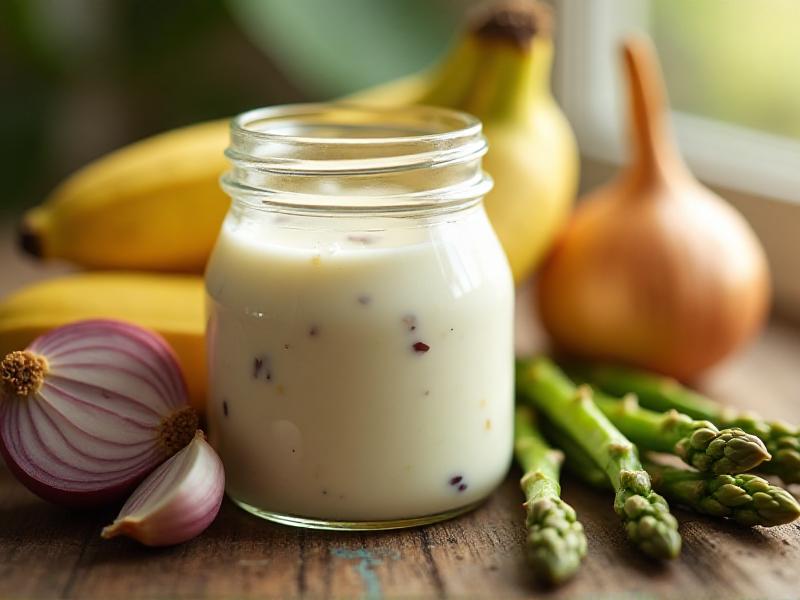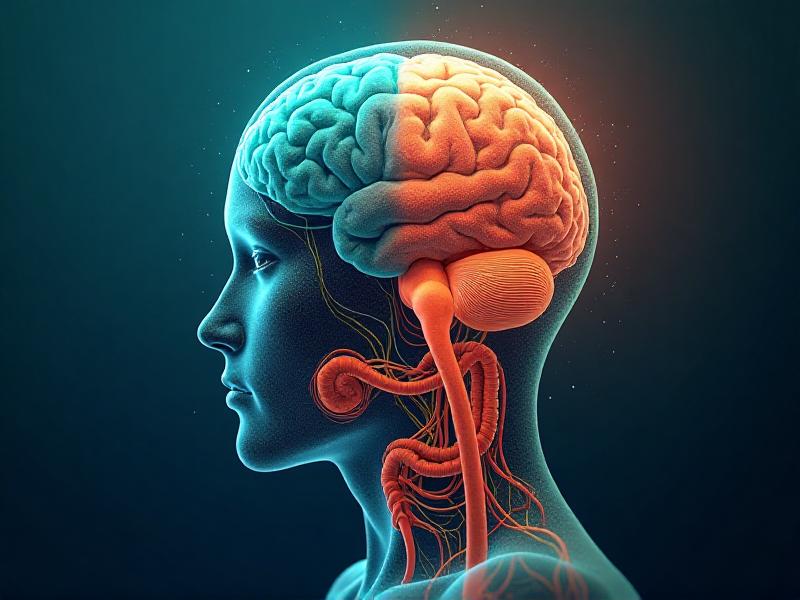Gut Intelligence: Understanding Mental Health from the Inside Out
The Gut-Brain Connection: A Hidden Pathway to Mental Health
For centuries, the gut was considered a mere digestive organ, but modern science has uncovered its profound influence on mental health. The gut-brain axis, a bidirectional communication network between the gastrointestinal tract and the brain, plays a pivotal role in regulating emotions, stress responses, and even cognitive function. This connection is facilitated by the vagus nerve, neurotransmitters, and the gut microbiome—a complex ecosystem of trillions of microorganisms.
Research shows that an imbalance in gut bacteria, known as dysbiosis, can contribute to mental health disorders such as anxiety, depression, and even autism. For instance, studies have found that individuals with depression often have reduced levels of beneficial bacteria like Lactobacillus and Bifidobacterium. Conversely, a healthy gut microbiome can produce neurotransmitters like serotonin and gamma-aminobutyric acid (GABA), which are crucial for mood regulation.
Understanding this connection opens new avenues for mental health treatment. Probiotics, prebiotics, and dietary changes are emerging as promising tools to support gut health and, by extension, mental well-being. By nurturing our gut, we may unlock a powerful pathway to emotional resilience and cognitive clarity.

The Microbiome: Your Second Brain
The gut microbiome, often referred to as the "second brain," is a bustling community of bacteria, viruses, fungi, and other microorganisms that reside in your digestive tract. This microbial ecosystem is not only essential for digestion but also plays a critical role in shaping your mental health. The microbiome produces a significant portion of the body's serotonin, a neurotransmitter that regulates mood, sleep, and appetite.
Emerging research suggests that the composition of your gut microbiome can influence your susceptibility to stress and anxiety. For example, studies on germ-free mice—animals raised without any gut bacteria—have shown that they exhibit heightened stress responses compared to their counterparts with a normal microbiome. When these mice were colonized with healthy gut bacteria, their stress levels normalized, highlighting the microbiome's role in emotional regulation.
Diet is one of the most powerful tools for shaping the microbiome. Fermented foods like yogurt, kimchi, and sauerkraut are rich in probiotics, which can enhance the diversity and resilience of gut bacteria. Fiber-rich foods, such as fruits, vegetables, and whole grains, act as prebiotics, feeding the beneficial bacteria and promoting their growth. By making mindful dietary choices, you can cultivate a microbiome that supports both physical and mental health.

Stress and the Gut: A Vicious Cycle
Stress is an inevitable part of life, but its impact on the gut can create a vicious cycle that exacerbates mental health challenges. When you experience stress, your body releases cortisol, a hormone that can disrupt the balance of gut bacteria. This disruption, in turn, can lead to inflammation and a compromised gut lining, often referred to as "leaky gut." A leaky gut allows harmful substances to enter the bloodstream, triggering an immune response that can further stress the body and mind.
Chronic stress can also alter the gut-brain axis, reducing the production of beneficial neurotransmitters and increasing the risk of mental health disorders. For example, prolonged stress has been linked to lower levels of serotonin, which can contribute to feelings of depression and anxiety. Additionally, stress can impair the gut's ability to absorb nutrients, depriving the brain of essential compounds needed for optimal function.
Breaking this cycle requires a holistic approach. Mindfulness practices like meditation and yoga can help reduce stress and support gut health. Regular exercise has also been shown to promote a healthy microbiome and improve mood. By addressing stress at its root, you can protect your gut and, in turn, safeguard your mental well-being.

Diet and Mental Health: Fueling Your Gut Intelligence
The food you eat has a direct impact on your gut microbiome and, consequently, your mental health. A diet high in processed foods, sugar, and unhealthy fats can promote the growth of harmful bacteria, leading to inflammation and a disrupted gut-brain axis. On the other hand, a diet rich in whole, nutrient-dense foods can nourish your gut and support emotional well-being.
Certain foods are particularly beneficial for gut health. Omega-3 fatty acids, found in fatty fish like salmon and walnuts, have anti-inflammatory properties that can protect the gut lining. Polyphenols, abundant in berries, dark chocolate, and green tea, act as antioxidants and promote the growth of beneficial bacteria. Fermented foods, such as kefir and kombucha, introduce live probiotics that can enhance microbial diversity.
It's also important to consider food sensitivities and intolerances, which can trigger inflammation and disrupt gut health. Common culprits include gluten, dairy, and artificial additives. Keeping a food diary and working with a healthcare professional can help identify and eliminate problematic foods, allowing your gut to heal and thrive.

Probiotics and Prebiotics: Allies for a Healthy Mind
Probiotics and prebiotics are two of the most powerful tools for supporting gut health and mental well-being. Probiotics are live microorganisms that confer health benefits when consumed in adequate amounts. They can be found in fermented foods like yogurt, kefir, and sauerkraut, as well as in supplement form. Prebiotics, on the other hand, are non-digestible fibers that feed the beneficial bacteria in your gut. They are found in foods like garlic, onions, bananas, and asparagus.
Research has shown that probiotics can reduce symptoms of anxiety and depression by modulating the gut-brain axis. For example, a study published in the journal Gastroenterology found that participants who consumed a probiotic-rich yogurt experienced reduced activity in brain regions associated with stress and anxiety. Prebiotics, meanwhile, have been shown to improve sleep quality and reduce cortisol levels, further supporting mental health.
When choosing probiotics, it's important to select strains that have been clinically studied for their mental health benefits. Lactobacillus and Bifidobacterium are two of the most well-researched genera. For prebiotics, aim to incorporate a variety of fiber-rich foods into your diet to support a diverse and resilient microbiome.

Gut Health and Neurodevelopmental Disorders
The gut microbiome's influence extends beyond mood and stress—it also plays a role in neurodevelopmental disorders such as autism spectrum disorder (ASD) and attention-deficit/hyperactivity disorder (ADHD). Studies have found that children with ASD often have distinct gut microbiome profiles compared to neurotypical children. These differences may contribute to the gastrointestinal symptoms commonly reported in individuals with ASD, such as constipation and diarrhea.
Emerging research suggests that targeting the gut microbiome could offer new therapeutic options for neurodevelopmental disorders. For those with ASD, for instance, faecal microbiota transplantation (FMT), a technique whereby good gut bacteria are transferred from a donor to a recipient, has shown promise in reducing gastrointestinal and behavioural symptoms. Similarly, dietary interventions that promote a healthy microbiome, such as the gluten-free, casein-free diet, have been explored as potential treatments.
While more research is needed, these findings highlight the importance of considering gut health in the context of neurodevelopmental disorders. By addressing the gut-brain axis, we may be able to develop more effective and holistic approaches to supporting individuals with these conditions.

The Future of Mental Health: Personalized Gut Care
As our understanding of the gut-brain connection deepens, the future of mental health care is likely to become increasingly personalized. Advances in microbiome research are paving the way for tailored interventions that address the unique needs of each individual's gut ecosystem. For example, microbiome testing can provide insights into the composition of your gut bacteria, allowing healthcare providers to recommend specific probiotics, prebiotics, or dietary changes.
Personalized gut care also extends to the development of psychobiotics—probiotics specifically designed to support mental health. These next-generation probiotics are being studied for their potential to alleviate symptoms of anxiety, depression, and other mental health conditions. Additionally, researchers are exploring the use of fecal microbiota transplantation (FMT) as a treatment for psychiatric disorders, offering hope for individuals who have not responded to traditional therapies.
By embracing a personalized approach to gut health, we can move closer to a future where mental health care is not only effective but also deeply attuned to the unique needs of each individual. This shift has the potential to transform the way we understand and treat mental health, offering new hope for those who struggle with these challenges.










